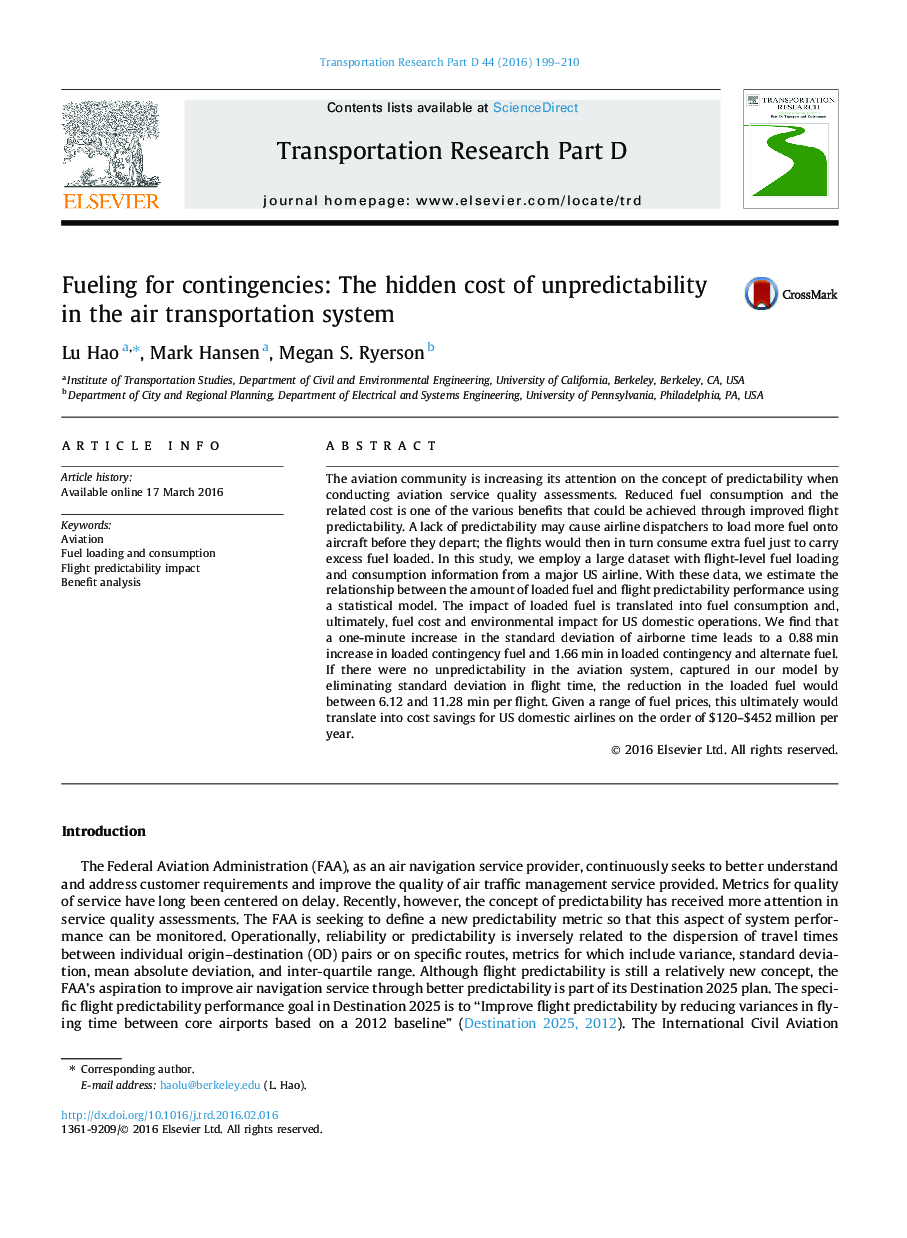| Article ID | Journal | Published Year | Pages | File Type |
|---|---|---|---|---|
| 1065655 | Transportation Research Part D: Transport and Environment | 2016 | 12 Pages |
•We estimate the impact of flight time unpredictability on airline fuel loading and consumption.•One minute of airborne time standard deviation leads to one additional minute of fuel uplifted for contingencies.•Eliminating flight time variability saves US domestic airlines $120–$452 million per year.•Per-flight fuel consumption attributed to the lack of predictability is 1%.•Increasing predictability supports current “green” initiatives in aviation.
The aviation community is increasing its attention on the concept of predictability when conducting aviation service quality assessments. Reduced fuel consumption and the related cost is one of the various benefits that could be achieved through improved flight predictability. A lack of predictability may cause airline dispatchers to load more fuel onto aircraft before they depart; the flights would then in turn consume extra fuel just to carry excess fuel loaded. In this study, we employ a large dataset with flight-level fuel loading and consumption information from a major US airline. With these data, we estimate the relationship between the amount of loaded fuel and flight predictability performance using a statistical model. The impact of loaded fuel is translated into fuel consumption and, ultimately, fuel cost and environmental impact for US domestic operations. We find that a one-minute increase in the standard deviation of airborne time leads to a 0.88 min increase in loaded contingency fuel and 1.66 min in loaded contingency and alternate fuel. If there were no unpredictability in the aviation system, captured in our model by eliminating standard deviation in flight time, the reduction in the loaded fuel would between 6.12 and 11.28 min per flight. Given a range of fuel prices, this ultimately would translate into cost savings for US domestic airlines on the order of $120–$452 million per year.
